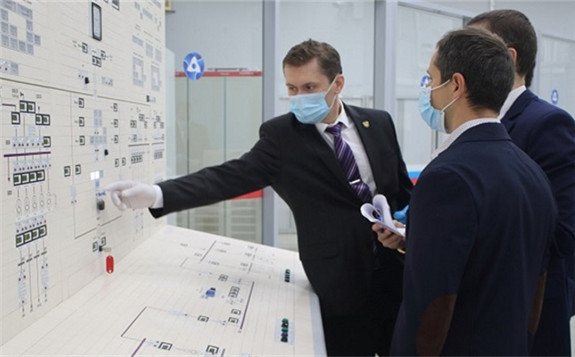Unit 2 of the Leningrad II nuclear power plant in western Russia has entered the final stage of pilot operation - a 15-day programme of tests at nominal capacity. On successful completion of these tests, the VVER-1200 unit will be stopped for inspection of its equipment and, following regulatory approval, will then be put into industrial operation, which is scheduled for this spring.

"These tests are a criterion for the success of the entire stage of experimental and industrial operation, which total more than 140 days," said Alexander Belyaev, chief engineer of Leningrad II.
"We started these works strictly on schedule, and this shows that the introduction of the power unit is going according to plan. During 15-day complex testing of the unit at 100% capacity, all the equipment and systems of the unit should function efficiently, reliably and safely, as stipulated by the requirements of technological regulations and in full compliance with the project. Only after that, we will be able to be sure that the new power unit of the Leningrad nuclear power plant is fully ready for industrial operation and carrying a stable load in accordance with the design life of 60 years of operation."
The unit was first connected to the Russian grid on 22 October last year and since then has successfully passed the phased increase in capacity, Rosatom said.
The existing Leningrad plant site in Sosnovy Bor has four RBMK-1000 units, while Leningrad II will have four VVER-1200 units. Leningrad unit 1 was shut down for decommissioning on 21 December 2018. Leningrad II unit 1 was connected to the grid on 9 March 2018, becoming the second VVER-1200 reactor to start up, following the launch in 2016 of Novovoronezh unit 6. Leningrad II-2 will replace Leningrad-2, which was shut down permanently on 10 November 2020 after 45 years of operation.